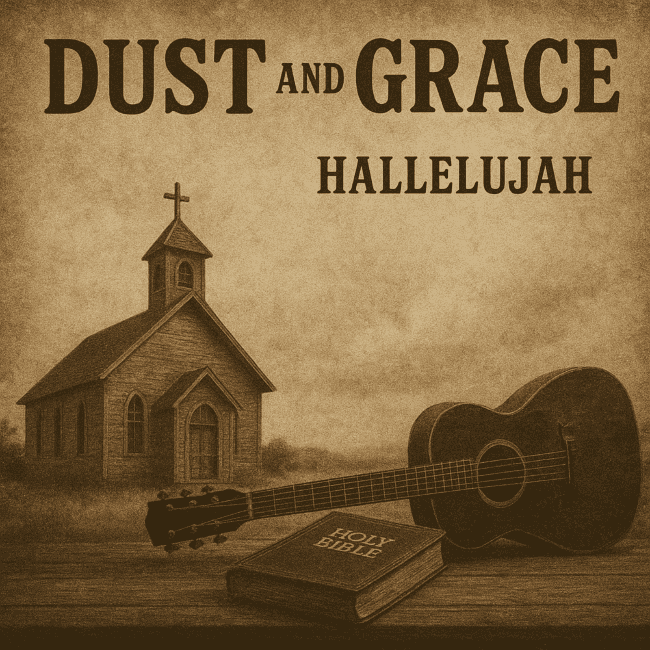Country music, at its most elemental, has always been a place where the sacred and the secular mingle without apology. Dust and Grace’s new single, “Hallelujah,” enters that long tradition with unguarded fervor. Released on August 22 and already climbing the CDX Nashville Positive Country airplay chart at #40, the song is less about subtlety than about surrender—an unabashed invitation to collective praise, broadcast with the confidence of a camp meeting chorus.
Written and produced by veteran Michael Stover, “Hallelujah” is a study in accessibility. The verses use uncomplicated phrases—“I wanna sing something to ya / I wanna sing hallelujah”—designed for instant memorization. The chorus builds into a swelling refrain of “Everybody praise the Lord,” repeated like a mantra until it becomes both declaration and command. Dust and Grace aren’t interested in metaphorical nuance here. Instead, they aim for universality, a song that can function as testimony, anthem, and singalong all at once.
The arrangement is firmly in the contemporary country pocket: crisp acoustic strums, bright electric accents, and a rhythm section that keeps the song rolling forward with radio-friendly energy. There’s a nod toward the gospel-infused roots of the genre, but the production favors clarity over grit. Every line is audible, every hook polished, as if to guarantee that nothing gets lost in translation.
The most striking turn arrives in the third verse, where the singer moves from collective invitation to confessional revelation: “I wasn’t born a believer / I was a desperate deceiver / Until I found my redeemer / He makes me wanna praise the Lord.” Suddenly, the song shifts registers, from public call to private testimony. It’s a reminder that behind every generalized hallelujah lies a specific story, a lived moment of conversion or grace. That glimpse of vulnerability deepens the track, rescuing it from the risk of becoming only a surface-level celebration.
Of course, repetition is both the song’s greatest strength and its limitation. The word “hallelujah” is sung dozens of times, each echoing the last. For some listeners, this relentless affirmation may feel redundant. But for Dust and Grace, repetition is not filler—it’s ritual. The song leans into the logic of worship, where saying the word again and again isn’t about novelty but about emphasis, about inhabiting belief until it becomes embodied.
The single arrives with a video, already charting on CMC TV USA’s country video playlist, which emphasizes performance over narrative. It’s a straightforward showcase: a band in motion, playing with conviction, as though the sheer act of singing the word hallelujah is enough to communicate its meaning. The lack of visual complication mirrors the track’s lyrical directness.
“Hallelujah” doesn’t push boundaries musically, nor does it attempt to innovate the country-gospel hybrid it inhabits. Instead, Dust and Grace find strength in affirmation, crafting a song that feels less like a provocation and more like a reminder: faith, expressed through song, still has a place in country’s contemporary landscape. In that sense, “Hallelujah” isn’t just another single release—it’s a modest but earnest gesture toward continuity, stitching today’s playlists to yesterday’s traditions with a single word sung loud.
–John Parker






